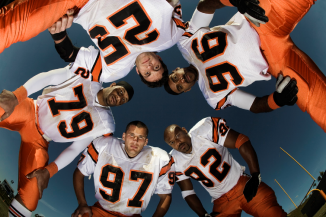
You've probably heard that a speech should be a conversation. Some presenters agree with that, and some don't. Whether we like it
or not, however, successful speaking involves conversation. If we ignore that, we might just "die" on stage. Neither we,
nor our audience wants that to happen.
The literal source, or etymology, of conversation, means to "have dealings with others."
There are many kinds of conversation that take place with every presentation. When you talk about a bad day you once had, and some
of your audience nod — that is a conversation. When you ask for a volunteer, and get one — that is a conversation. When you ask
questions to the audience, and get a response, that is also a conversation. The title of this article is a conversation. Most
importantly, your audience members will constantly have conversations going on within their heads as you speak. Those are conversations
you can't control, but you can influence them. Based on that influence, those "internal" conversations will determine the success or
overflowing

